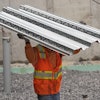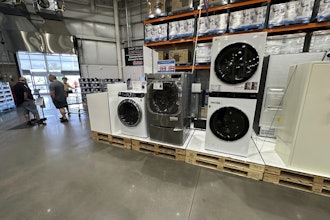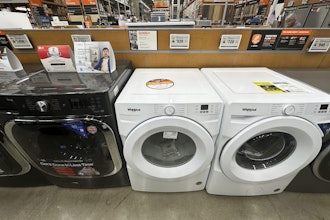A new report suggests that efforts to increase minimum wage requirements in many large cities could dramatically impact rapidly growing e-commerce supply chains.
Although current warehouses are traditionally located in suburbs and small towns, e-retailers like Amazon.com face intense pressure to deliver orders more quickly and, as a result, are more likely to put their fulfillment centers in dense population areas.
U.S. cities, however, are increasingly responding to calls to increase their minimum wages compared to the long-standing federal minimum of $7.25 per hour.
In a study released last week, Los Angeles-based commercial real estate firm CBRE noted that labor accounts for about one-fifth of overall supply chain costs.
A $1 per hour increase in the minimum wage, the report found, would translate to an additional $1 million in annual labor costs for a fulfillment center of 500 employees — or a 37 percent rent increase, on average, for a 500,000 square-foot facility.
Amazon facilities can be considerably larger than that.
"E-commerce and other businesses that are tied to these dense locations will see the greatest impacts," CBRE Americas research chief Spencer Levy told The Wall Street Journal.
Wage rates, meanwhile, are also rising at a much faster clip than $1 per hour in many areas. Twenty-nine states and the District of Columbia already exceed the federal minimum wage, and numerous cities are pushing toward a $15 per hour minimum.
The CBRE report said that increased labor costs could encourage companies to pursue locations in neighboring cities or in lower-wage states. Some could also increasingly invest in automation to stave off additional employee costs.
Proponents of higher wage thresholds argue that an increase in the federal rate is long overdue and that higher wages ultimately boost the broader economy.






















